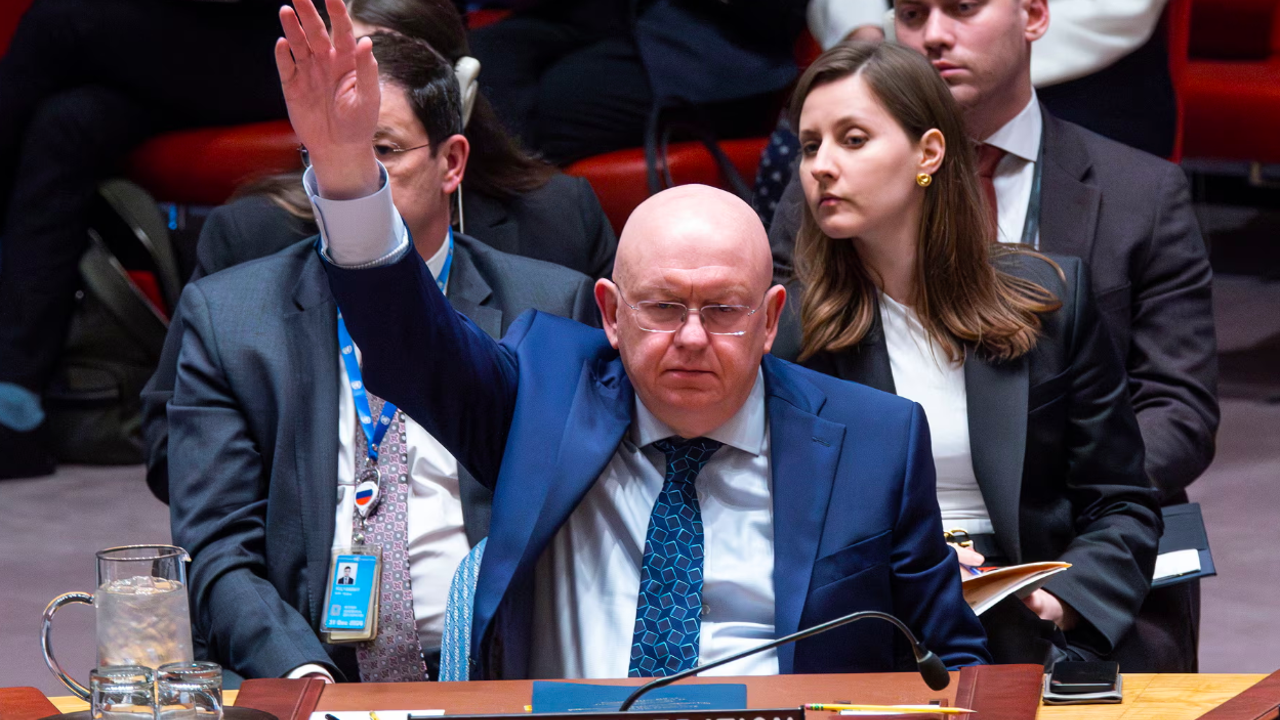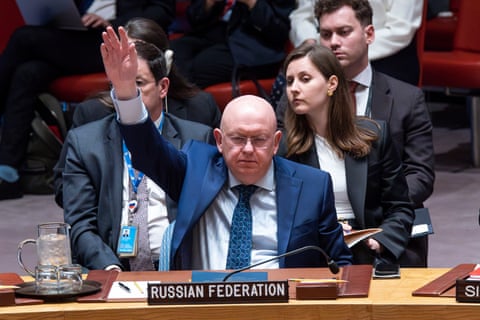Russia vetoes UN resolution aimed at preventing nuclear arms race in space
Russia vetoed a UN resolution, sponsored by the United States and Japan, calling for prevention of nuclear arms race in outer space, citing it as 'a dirty spectacle'

Russia has vetoed a U.N. Security Council resolution aimed at urging all nations to prevent a dangerous nuclear arms race in outer space, dismissing it as “a dirty spectacle.”
The resolution, sponsored by the United States and Japan, aimed to call on all countries to refrain from developing or deploying nuclear arms or other weapons of mass destruction in space, something already prohibited under a 1967 international treaty.
The vote in the 15-member Security Council resulted in 13 in favor, with Russia in opposition and China abstaining.
U.S. questions Russian motive in veto, 'why'

“Today’s veto begs the question: Why? Why, if you are following the rules, would you not support a resolution that reaffirms them? What could you possibly be hiding,” U.S. Ambassador Linda Thomas-Greenfield asked after the vote whereby Russian President Vladimir Putin has said Moscow has no intention of deploying nuclear weapons in space.
Thomas-Greenfield further commented, “It’s baffling. And it’s a shame," expressing disappointment in Russia's decision.
U.S. National Security Advisor Jake Sullivan on Wednesday echoed Thomas-Greenfield, reiterating that “the United States assesses that Russia is developing a new satellite carrying a nuclear device.” If Putin has no intention of deploying nuclear weapons in space, Sullivan said, “Russia would not have vetoed this resolution.”
Russia says the resolution is politicized, fails to ban all types of weapons

Russia’s U.N. Ambassador Vassily Nebenzia dismissed the resolution as “absolutely absurd and politicized,” and said it didn’t go far enough in banning all types of weapons in space.
Russia and China proposed an amendment to the U.S.-Japan draft that would call on all countries, especially those with major space capabilities, “to prevent for all time the placement of weapons in outer space, and the threat of use of force in outer space.”
The vote resulted in 7 countries in favor, 7 against, and one abstention, leading to the defeat of the amendment due to its failure to secure the minimum 9 "yes" votes required for adoption.
Russia re-directs the 'why' question to the U.S.
The U.S. opposed the amendment, and after the vote Nebenzia addressed the U.S. ambassador's previous statement.
“We want a ban on the placement of weapons of any kind in outer space, not just WMDs (weapons of mass destruction). But you don’t want that. And let me ask you that very same question. Why?” Russia’s U.N. Ambassador Vassily Nebenzia stated.
Nebenzia said much of the U.S. and Japan’s actions become clear “if we recall that the U.S. and their allies announced some time ago plans to place weapons…in outer space.”
Thomas-Greenfield announced the U.S.-Japan resolution in March, after the White House confirmed that Russia had obtained a “troubling” anti-satellite weapon capability, although it’s not believed to be operational yet.
Governments have increasingly viewed satellites in Earth’s orbit as crucial assets that enable an array of military capabilities on Earth, with space-based communications and satellite-connected drones in the war in Ukraine serving as recent examples of space’s outsized role in modern warfare.
Putin said earlier this year that Russia was against the deployment of nuclear weapons in space. “Our position is clear and transparent: We have always been categorically against and are now against the deployment of nuclear weapons in space,” he said.
Source: Newsroom














